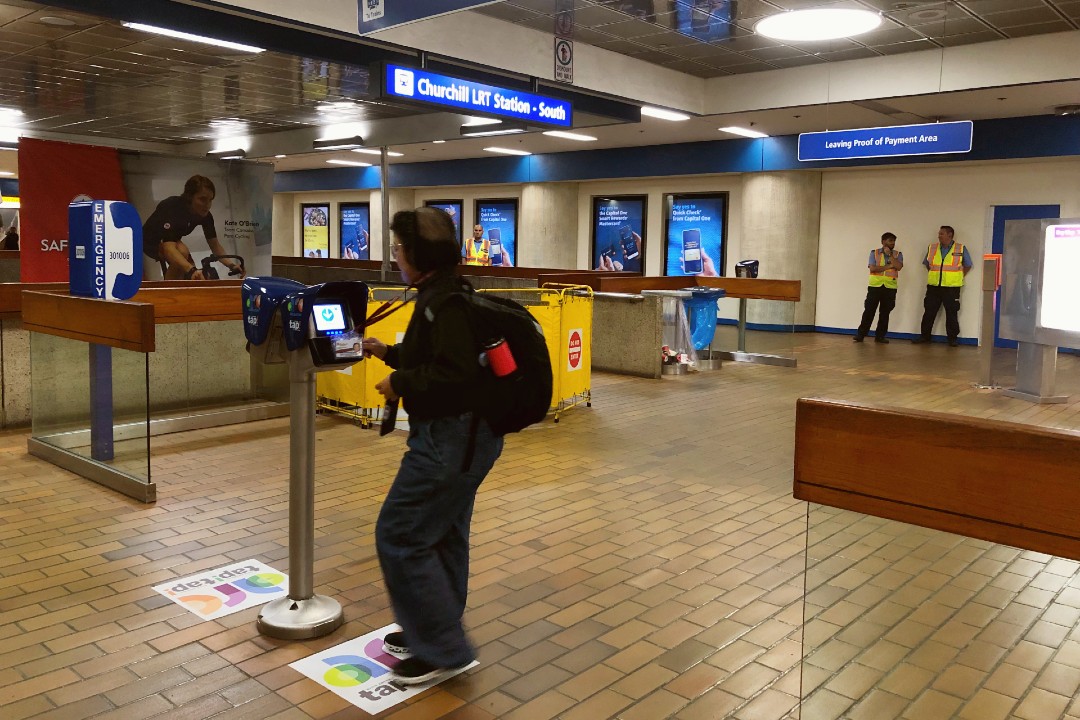Taproot's work on the upcoming municipal elections across the Edmonton region, a push to add boots on the ground at LRT stations, and the curious case of reducing zoning density to increase density were all fodder for the co-hosts of Episode 304 of Speaking Municipally. Here's a quick glimpse:
1. Election partnerships sought
After taking a breath following the April 28 federal vote, voters in the Edmonton region will next start to contemplate the municipal elections in October. Taproot is already structuring its work by asking readers to tell us the issues they care about as they consider who to vote for. This is step one of several Taproot actions, which will include sending the Taproot Survey to municipal candidates and creating a matching engine that will help voters figure out who aligns with their views. That feature was in place for the last election, in 2021, and it's coming back.
Co-host Mack Male discussed how Taproot wants to reach even more people to get a bigger cache of data and engagement in 2025. "We're looking for election partners who want to work with us to make the survey that we build for candidates and the voter matching engine even more desirable and (a) must-complete for everyone," he said. "So, we're looking for organizations that want to work with us to help spread the word about the question, to tap into their networks, and make sure that we collect as broad a cross-section of Edmontonians as we can."
2. Police adjacent people positioned at LRT
Pavlek noted council last week discussed the end of Commissionaires serving at LRT stops. "These are the yellow-pinnied security guards that can't quite do anything at transit stations," he said. The program has been cut and council has decided to proceed by adding 30 more transit peace officers to transit stations after further debate last week.
Male noted council has redirected $5 million to hire the additional peace officers, bringing the city-wide total to 126. The council discussion had some interesting wrinkles, though. Both discussed Coun. Anne Stevenson's motion to split that $5 million between new peace officers and a safety attendant program.
Stevenson's motion failed and council decided to simply go ahead with the peace officers. But Pavlek said the idea nonetheless has merit because attendants can help people navigate connections, clean up stations, and even perform first aid. "I can see as a policy how that is better, (but) politically, I think it's a nonstarter," he said. "Edmontonians want one thing right now … and that is putting more police or police adjacent individuals in transit stations."
3. The tale of down zoning for good?
A long-vacant land parcel at 76 Avenue NW and 97 Street NW has been down-zoned to up its density — a move that sounds counterintuitive on the surface. Pavlek, who lives close to the lot, said a developer wants to add homes on the property but that zoning changes, bankruptcies, and a 100-year-old elm tree have made it complicated.
As Pavlek said, the city once zoned the lot to allow for several options, including duplexes and even more single-family homes, but the lot's former owner and developer went bankrupt. Then the city's recent zoning bylaw renewal work zoned the lot to require essentially an apartment-building style structure, yet complying with that would have required the new owner and developer to saw down the mature tree. Pavlek explained how the developer convinced city officials that the current zoning aimed to get up to 12 housing units, and, if the lot were down-zoned, that they would build roughly half that on a lot that has zero housing at the moment.
"This down zoning isn't actually a down zoning," Pavlek argued. "It's just a flexibility zoning. It's going to give us the ability to actually build." He added that several councillors took issue with the principle, nonetheless, asking "'Why are we down zoning on one of the most up and coming strips, right in Edmonton?'" But Pavlek argued housing that isn't a single-family home in place of an empty pit is progress.
The April 18 episode of Taproot's civic affairs podcast also discussed the Front Yards in Bloom program, transit, elections, and more, and included an update from the Taproot newsroom. Speaking Municipally comes out on Fridays. Listening and subscription options are all right here.

